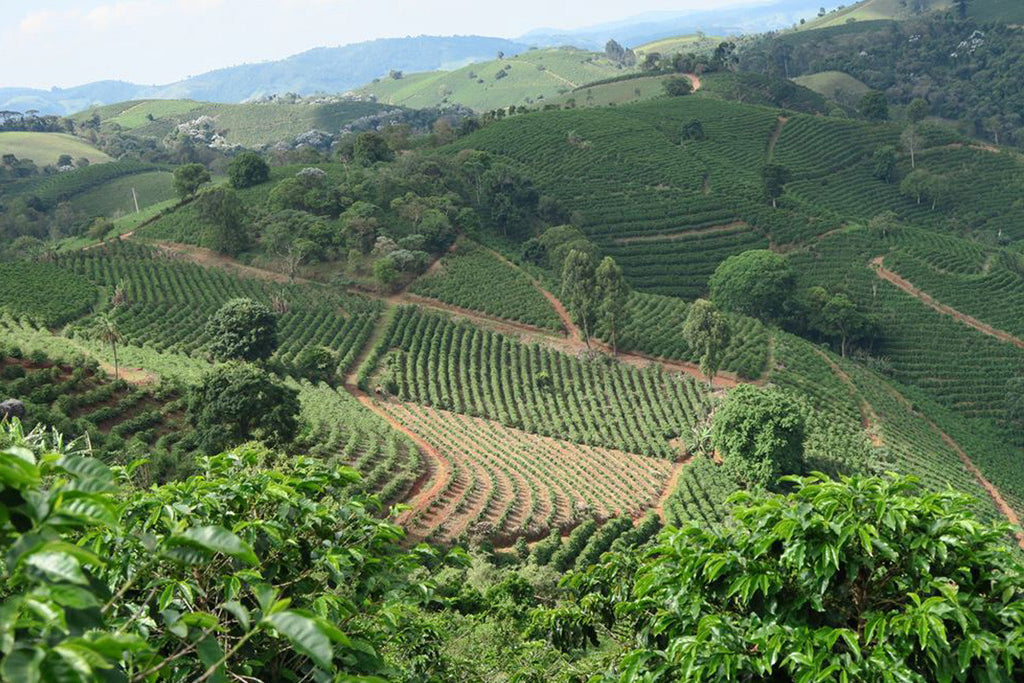April 10, 2025
What Is The Importance of Coffee Origins?

For many, drinking coffee is seen as a necessity to simply get through the day. But as consumers become more and more engaged in knowing where their products come from, should coffee be viewed any differently?
In this blog, we’re diving into why the origin of each coffee matters to understand the value and journey every bean takes to reach your cup.
What is a coffee “origin”?
A coffee "origin" refers to the geographic location where the coffee was grown, which can be a single farm, a collection of farms, or even a large region within a specific country. We believe in being as detailed as possible when describing our coffees' origins, making sure to give credit to specific farms or producing regions whenever we can. A good example of this is our newest offering, Brazil Legender Especial Peaberry, sourced from the micro-regions of Machado, Poco Fundo, and Campestre in Brazil, which focus on small, family-run farms.
However, not everyone focuses on just single-origin coffees. Coffee “blends” remain the most popular among everyday coffee drinkers. The term “Blend” simply means that two or more single-origin coffees were mixed together, often done to achieve a more consistent and balanced flavor. Take our fan favorite Lusso Italia for example: it is a combination of coffees from Cerrado, Brazil; Tarrazu, Costa Rica; and Antigua, Guatemala. Blends are just as important when considering coffee origins—they take a slightly different approach but still hold significance of where the coffee comes from.
What makes each origin so special?
Knowing where our coffee comes from offers a window into the land, the people, and the practices behind every cup. The uniqueness of each origin comes from a combination of factors such as coffee variety, climate, soil, elevation, and processing methods—all of which are tied to place. A coffee from the highlands of Ethiopia can burst with floral and citrus notes, while one from volcanic soils in Guatemala might bring rich chocolate and dried fruit flavors.
Beyond taste, knowing a coffee’s origin also supports transparency and accountability. When we trace coffee back to its source, we can better understand who grew it, how it was cultivated, and whether it was produced sustainably and ethically. This connection helps drive fairer practices in the industry and empowers consumers to make more informed choices, supporting both quality and equity across the supply chain.
Conclusion:
Understanding the origins of coffee is not just about the flavor in your cup but also recognizing the people, places, and practices that bring it to life. Each coffee’s origin tells a story, from the farmers who grow it to the environment that shapes its characteristics. By appreciating the diversity in coffee origins, we deepen our connection to the beverages we enjoy and contribute to a more sustainable and fair industry.
In today’s world, where transparency and ethical consumption are becoming increasingly important, knowing where your coffee comes from empowers you to make better choices. Whether you're enjoying a single-origin coffee that highlights the distinct flavors of a specific region or sipping on a carefully crafted blend, the story behind the beans matters. It’s a way to honor the hard work of coffee producers while savoring the rich diversity the world has to offer. So next time you sip your coffee, take a moment to appreciate its origin and the journey it has taken to reach your cup.
Written by- Lucio Chrestay
lucio@oneillcoffee.com
